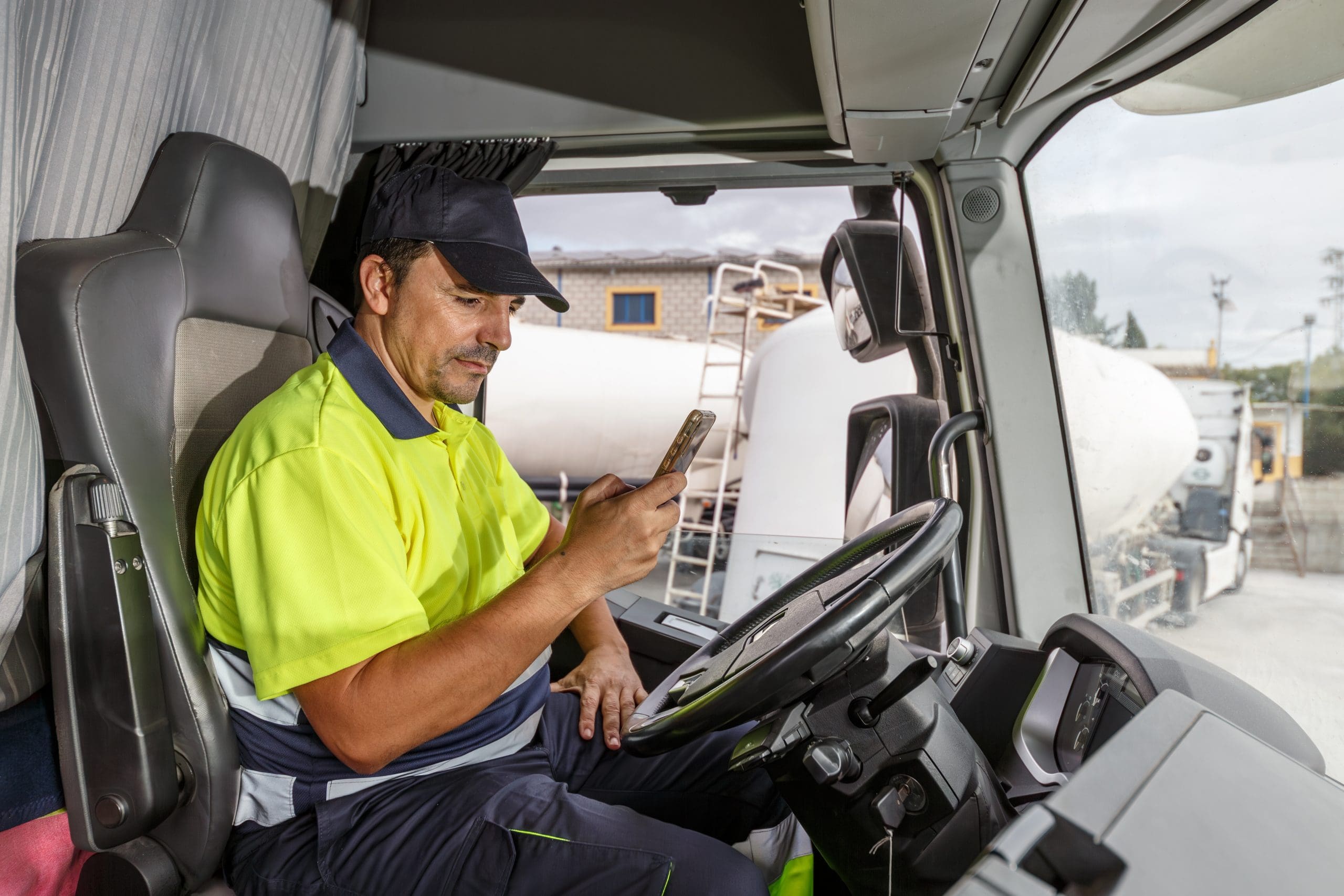
Staying competitive and efficient in transport logistics means doing less grunt work and leveraging technology advances to keep your to-do list under control. For superior oversight and control, transport operators have embraced the Transport Management System (TMS). This powerful software solution streamlines operations, enhances visibility, and optimises resource use, putting everything in one place.
Let’s delve into the key reasons why a TMS is essential for modern transport operations in Australia and how it benefits drivers, subcontractors, and your overall profitability.

Why do transport providers need a TMS?
The benefits of using a TMS are manifold. From your day-to-day and repetitive tasks to essential safety responsibilities and reporting, using a modern digital TMS is continuously beneficial for transport operators. Here’s a list of some of the reasons that providers use a TMS:
Boost efficiency. A TMS automates manual tasks such as load planning, dispatching, and route optimisation. This automation reduces human errors, improves turnaround times, and ensures smoother operations from order placement to delivery.
Improve visibility. Real-time tracking of shipment status, vehicle locations, and delivery updates enables better decision-making, proactive issue resolution, and enhanced customer satisfaction. Transport providers can therefore monitor operations at a granular level, minimising disruptions and optimising resource allocation.

Tighten cost control. By optimising routes, reducing empty miles, and improving fuel efficiency, a TMS helps control operational costs. In addition, access to data analytics and reporting tools within the TMS facilitates cost analysis, budgeting, and strategic planning for sustainable growth.
Simplify compliance and documentation. Streamlined documentation processes within the TMS ensure compliance with regulatory requirements, safety standards, and customer agreements. Electronic record-keeping, invoicing, and proof of delivery functionalities simplify administrative tasks and reduce paperwork burdens.
A TMS delivers massive advantages to transport operators, and to multiple related stakeholders. Let’s look at how it benefits those behind the wheel.
Why is using a TMS beneficial for drivers and subcontractors?
Ensuring the satisfaction of the people responsible for the trucks and deliveries on the road is imperative. Here is how a TMS helps you support their needs and manage your workforce with ease.
Enhanced communication. A TMS facilitates seamless communication between dispatchers, drivers, and subcontractors through mobile applications, messaging systems, and automated notifications. Clear instructions, real-time updates, and instant feedback improve collaboration and operational efficiency.

Optimised workflows. Drivers benefit from optimised routes, accurate load information, and real-time traffic updates provided by the TMS. Reduced wait times, efficient load planning, and streamlined workflows contribute to driver satisfaction and productivity.
Visibility and accountability. Drivers and subcontractors can track their performance metrics, such as on-time deliveries, mileage, fuel consumption, and compliance with safety regulations, through the TMS dashboard. This visibility fosters accountability, rewards top performers, and identifies areas for improvement.
Paperless processes. Digital documentation, electronic signatures, and mobile document uploads within the TMS reduce paperwork for drivers and subcontractors. This paperless approach saves time, minimises errors, and ensures regulatory compliance with electronic records.
A happy team means better outcomes for transport operators. Smart technology not only makes life easier for drivers and subcontractors, but it’s also a major factor in attracting and retaining a younger workforce, something that the logistics industry sorely needs. The technology also eases another significant paint point for transport operators: fuel efficiency.
How does a TMS help track vehicle usage and mileage in Australia?
Take advantage of the smart analytics in a TMS to drive your fleet fuel efficiency further. Let’s look at how a TMS reduces your expenditure and improves your oversight on the road.
GPS Tracking and telematics integration. TMS platforms often integrate with GPS and telematics systems installed in vehicles. This integration enables real-time tracking of vehicle locations, routes taken, idle times, and mileage data. Transport providers can also monitor fleet performance, analyse usage patterns, and optimise asset use.
Automated mileage calculations. By capturing odometer readings and route information, a TMS automatically calculates vehicle mileage for accurate reporting, fuel tax credits, and maintenance scheduling. This data-driven approach eliminates manual mileage tracking errors and ensures compliance with regulatory requirements.
Fuel efficiency monitoring. TMS solutions can monitor fuel consumption patterns across the fleet based on vehicle types, routes, and driving behaviours. Insights from fuel usage data help identify opportunities for fuel savings, route optimisations, and eco-driving training initiatives.
Easy maintenance scheduling. Using mileage and usage data collected by the TMS, transport operators can schedule proactive maintenance tasks such as oil changes, tire rotations, and inspections. Preventive maintenance reduces downtime, extends vehicle lifespans, and enhances operational reliability.
The sophisticated analytics possible thanks to a TMS improves your on-the-road efficiency and your overall profitability.

How does using a modern TMS help transport companies boost profitability?
If you’re still wondering if a TMS would be worthwhile for your operations, consider these five additional ways this technology strengthens your bottom line and resilience to industry challenges.
1. Optimised resource allocation. Advanced algorithms and analytics in modern TMS platforms optimise resource allocation by matching shipment demands with available capacity, minimising empty miles, and maximising load efficiency. This optimisation translates into higher revenue per mile and improved profitability.
2. Reduced operational costs: TMS-driven route optimisation, fuel efficiency improvements, and streamlined workflows lead to significant cost savings in fuel, labour, and administrative overheads. Lowering operational costs directly contributes to enhanced profitability margins.
3. Customer satisfaction and retention: Enhanced visibility, accurate delivery ETAs, and proactive issue resolution enabled by the TMS result in higher customer satisfaction levels. Satisfied customers are more likely to repeat business, refer new clients, and contribute to long-term revenue growth.
4. Data-driven decision making. Robust data analytics and reporting features in modern TMS platforms empower transport companies to make informed decisions based on actionable insights. From pricing strategies to route optimisations, data-driven decisions drive efficiency improvements and revenue generation opportunities.
5. Scalability adaptability: Modern TMS solutions are scalable and adaptable to evolving business needs, market dynamics, and regulatory changes. Whether expanding operations, integrating new technologies, or complying with industry standards, a flexible TMS infrastructure supports business growth and agility.

Drive success further with a smart TMS
Adopting a TMS should be seen as both a technological upgrade and a strategic investment for Australian transport providers. These programs support businesses to achieve operational excellence, cost efficiency, and sustainable profitability. By combining the power of automation, real-time visibility, data analytics, and collaborative workflows, transport companies can make significant advances across the board. Consider a modern, smart TMS if you want to navigate challenges better, capitalise on opportunities, and deliver superior value to your customers.
GoDesta: Growing Transport Faster, Smarter
